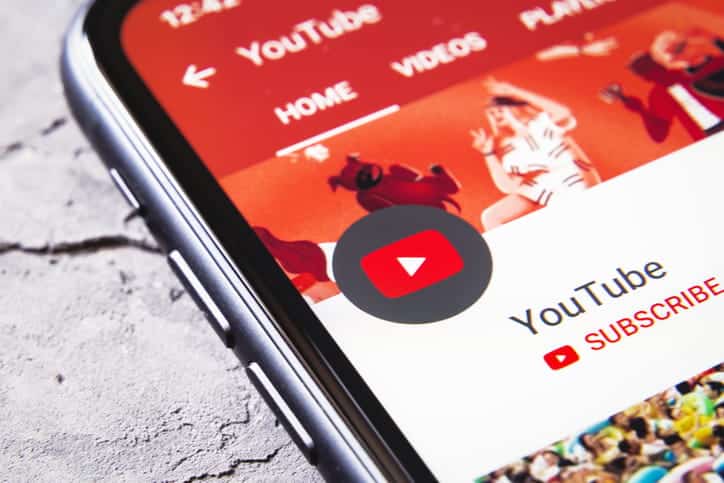What Is Social Media Marketing?

Social media marketing (SMM) is the use of social media platforms to promote a brand. It goes beyond just posting content. Companies use this form of digital marketing to connect with audiences, build relationships, and achieve business goals.
Levy Online has a team that helps businesses improve their online presence. We understand how social media platforms work, and the best ways to use them for marketing.
Why Is Social Media Marketing Important for Your Business?
Social media marketing can help your business in various ways, including:
- Increased brand awareness and visibility: Social media platforms have millions of users. A business can reach a significant percentage of the millions. Consistently posting interactive content and engaging with users substantially helps increase brand awareness and visibility.
- Improved customer engagement and loyalty: By allowing real-time engagement through comments and direct messages with audiences, SMM fosters a sense of community, which helps increase customer satisfaction and loyalty.
- Increased website traffic and lead generation: A business can drive qualified leads from social media to their website. Include a link to your website on your social media profiles and ensure your posts remind users to click on it to get a product/service or obtain more information. Creating compelling content increases the chances of a user taking the intended action.
- Cost-effective marketing solution: Social media marketing platforms allow businesses to reach a large audience, while keeping costs lower compared to traditional advertising methods. Additionally, many platforms offer free tools to help businesses create and manage content without breaking the bank.
- Valuable customer insights and feedback: Monitoring online conversations, going through comments, and paying attention to posts with the most engagement help businesses obtain valuable customer insights and feedback. In turn, they can make necessary adjustments on time to continue satisfying customers.
- Targeted advertising opportunities: Through social media, a business can catch the attention of a specific audience by leveraging user data. A business can segment their audiences based on age, location, gender, interests, education level, and online behavior. This ensures ads are shown to users who are most likely to engage.
- Stronger brand authority and trust: A business can establish itself as an industry leader using social media. Sharing educational content, participating in industry-related conversations, responding to inquiries, and humanizing a brand allows a company to showcase their expertise.
- Improved SEO (indirectly): Your brand being active on social media, receiving likes, shares, and comments, can indirectly improve search engine optimization (SEO). These social signals indicate content quality and engagement, which can impact SEO. Besides, high engagement on social media can drive traffic to your website.
Difference Between Organic and Paid Social Media Marketing
| Organic Social Media Marketing | Paid Social Media Marketing |
| Creating engaging content and building relationships with the audience naturally | Paying for advertisements on social media platforms |
| Focuses on building a loyal audience and fostering a sense of community | Focuses on reaching a wider audience to achieve specific goals, such as driving traffic to a website or boosting sales |
| It involves posting content consistently, engaging with users, and participating in relevant conversations | It involves running targeted ad campaigns, sponsoring posts, and collaborating with influencers |
A successful social media marketing strategy combines both organic and paid efforts.
Key Components of Social Media Marketing
Strategy Development
Strategy development entails defining goals, understanding your target audience, creating a content calendar, and having a brand voice.
The first thing to have in your social media marketing strategy is setting clear goals for every post you share. Do you want to drive traffic to your website, increase brand awareness, boost sales, or generate leads?
This provides direction, allowing you to allocate resources in ways that will yield the intended result. Additionally, it makes it easier to track progress and measure the effectiveness of a campaign.
Furthermore, you should understand your target audience. Know their demographics, interests, and online behavior to create content your audience will resonate with. Understanding your audience also helps you choose the right social media platforms for your campaigns.
A content calendar acts as a road map for SMM. It outlines what content will be created, when it will be shared, and where it will be distributed. This ensures a business posts consistently across different platforms. Creating and scheduling content can save time and effort.
Additionally, a business can track progress by measuring how campaigns perform based on when and where they were shared.
Deciding on brand voice helps a company maintain consistency. A user should quickly recognize your brand even without seeing your name or logo by simply seeing a post. Your brand tone and personality should be unique.
Content Creation and Curation
These are both vital components of SMM. Content creation is producing original content. On the other hand, content curation involves selecting, organizing, and sharing valuable, relevant content from other sources to your audience. For example, sharing industry news, content created by customers about your brand, and sharing articles from experts in your industry.
Content creation allows brands to showcase their identity, and content curation helps position them as informed, knowledgeable, and friendly.
Community Management and Social Listening
Community management involves interacting with followers, responding to comments and messages, acknowledging user contributions, and addressing concerns without delays to foster a positive community.
Social listening involves monitoring brand mentions, analyzing audience sentiments, following up on industry trends, and assessing competitors’ brands and activities.
These two aspects help businesses improve customer experience and make more informed marketing decisions.
Social Media Advertising
Leveraging paid campaigns allows a business to reach a wider and more targeted audience. As aforementioned, you can target audiences based on demographics, interests, and behaviors. The different ad formats you can use are image, video, carousel, story, and collection ads.
Our social media marketing services help businesses optimize paid campaigns. Our team will help you understand how to segment your audience and use each ad format. Check our social media marketing packages to determine what meets your needs.
Social Media Analytics and Reporting
This element involves gathering and interpreting data from your social media accounts to understand audience behavior and preferences better, track the performance of your campaigns, and make data-driven decisions. Examples of the key metrics to analyze are engagement, awareness, conversion, and customer service metrics.
Influencer Marketing
Collaborating with relevant influencers allows businesses to reach a wider audience. This approach is critical because the followers of the influencer trust their brand. Thus, they are more likely to trust the influencer’s recommendation.
Reach out to Levy Online to learn more about each of these components to maximize the benefits of social media marketing.
How To Choose the Right Social Media Platform Based on Your Business Goals
Each social media platform attracts a unique audience, has their own algorithm, and supports different content formats. Being aware of these elements will help you choose the right platform based on your business goals.
Here is what to know:
- Facebook: This is the largest platform with over three billion monthly users. It has a diverse audience with a strong presence of users in the 25-54 age range. Facebook is good for brand building and advertising.
- Instagram: Fundamentally a visual platform, Instagram allows businesses to capture audience attention using photos and videos. It’s great for brand storytelling and influencer marketing.
- Twitter (X): The short character limit makes it a reliable option for real-time updates, news, public conversations, and customer service.
- LinkedIn: Primarily for professional networking and industry information. It’s great for B2B social media marketing and establishing a brand as a thought leader.
- YouTube: The focus is on video marketing. A business can use YouTube for tutorials and brand storytelling. You can use it for both long-form videos and short videos on YouTube Shorts.
- TikTok: TikTok stands out as a platform that favors short-form video content for younger audiences. The algorithm allows for rapid virality, which is a great factor when a business wants to reach a wider audience.
- Pinterest: If you are a product-based business, consider using Pinterest to catch the attention of users actively looking for visual content on different topics. This platform functions more like a visual search engine than a social media platform.
How To Develop a Successful Social Media Marketing Strategy
1 . Define Clear Goals and Objectives (SMART goals)
You need to set specific, measurable, achievable, relevant, and time-bound goals when developing a social media marketing plan. This gives direction and ensures your efforts align with your business goals.
2. Identify Your Target Audience
Who are you trying to reach with every campaign? Knowing this allows you to create effective content. Even though reaching a wider audience is good, you want to be more specific.
3. Conduct Audience Research
Audience research involves gathering and analyzing information about your audience’s demographics, interests, and online behavior. It lets you further segment your audience into even narrower categories. Social media marketing courses can help you understand how to conduct audience research in depth.
4. Perform Competitive Analysis
Researching your competitors’ online presence helps you understand their strategies and performance. You can learn which of their campaigns perform well and where they are lacking. Accordingly, you can gain more understanding of your target audience and improve your strategy.
5. Choose the Right Platforms
Based on your audience and goals, choose the right platforms to post different types of content.
6. Develop a Content Strategy and Calendar
You need to plan your content themes, formats, and posting schedule. Additionally, you should establish your brand voice and tone. This will allow you to post consistently across different channels while maintaining your brand identity.
7. Outline Your Engagement Strategy
How will you encourage interaction and active participation from your audience? You should have an engagement strategy that outlines how to develop compelling content and how you will respond to your audience.
8. Define Key Performance Indicators (KPIs)
It’s crucial to know how to measure the success of your social marketing campaigns. Our social media marketing agency helps businesses determine the relevant key performance indicators (KPIs) to track based on their goals.
9. Regularly Analyze and Optimize
You should regularly track your performance and make adjustments as needed to ensure your campaigns stay effective.
The Future of Social Media Marketing
The future of social media marketing is leaning toward short-form video content. Platforms like TikTok, Instagram reels, and YouTube Shorts are gaining popularity as time goes by.
Additionally, there is an increased focus on authenticity and user-generated content. Customers are becoming more drawn to brands that show genuine connections and experiences. Brands are also moving toward community building instead of mass appeal strategies.
These changes are expected to increase social media marketing jobs, which will help the field to continue growing.
Why Choose a Digital Marketing Agency for SMM?
Working with a social media marketing agency gives access to specialized expertise. Levy Online has helped many businesses build a successful social media marketing strategy for years.
Our team will ensure you are well-informed about your campaigns and the strategies implemented. We will answer your questions, including which platforms to use, how to create and schedule content, SEO vs. PPC: which is better, and so on.
When you work with an agency, you save time. We will handle all aspects of social media marketing while you focus on running your business. Moreover, you will have access to advanced tools for optimizing your strategies.
We offer social media marketing management and strategic guidance to help you achieve your marketing and branding goals.
FAQ
Sources:
Baldassarre, R. (2023). 10 Ways to Maximize Your Influencer Marketing Efforts.
How to Create a Content Calendar for Your Marketing Strategy. (2023).
Most Popular Social Networks Worldwide as of February 2025, by Number of Monthly Active Users. (2025).






